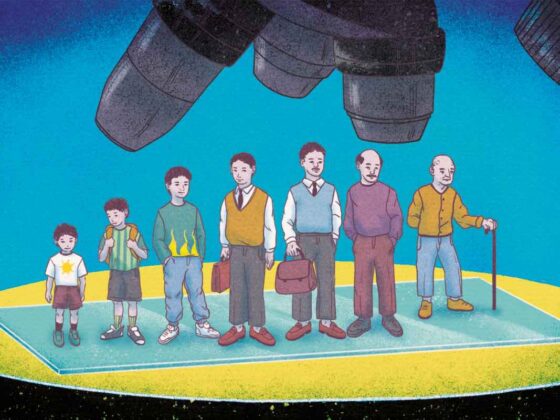Adult survivors of cancer have a 37% higher risk of developing cardiovascular disease (CVD) than people without cancer. The study, published in the Journal of the American College of Cardiology, July 5 issue, found cancer survivors had a 52% higher risk of developing heart failure and 22% higher risk of developing stroke than people without cancer but that their risk of coronary heart disease (CHD) was unaffected. The excess risk could not be explained by traditional CVD risk factors.
“Cardiovascular disease is one of the leading causes of death among some cancer survivors and that risk is oftentimes neglected,” says Roberta Florido, the first author, from Johns Hopkins University, Baltimore. “We hope our research increases awareness of heart disease risk in those who survive cancer and that health care providers actively reinforce the importance of prevention.”
CVD and cancer share numerous risk factors (e.g. obesity, smoking, diabetes, and hypertension) and pathophysiologic mechanisms (e.g. inflammation) that may predispose people to both conditions. In addition, several cancer treatments may cause cardiotoxicity, contributing to a higher risk of CVD among cancer survivors. “Understanding the true excess burden of CVD and its subtypes in cancer survivors, as well as the degree to which CVD risk in this population is explained by shared risk factors, can inform clinical and public health strategies for CVD prevention in this unique patient population,” write the authors.
In the current prospective analysis, Florido and colleagues compared the risk of CVD and CVD subtypes among cancer survivors and noncancer controls. The investigators used data from the Atherosclerosis Risk in Communities (ARIC) study, a US prospective community-based cohort initiated in 1987 to study the risk factors and natural history of CVD. Participants were aged 45 to 64 years at enrolment and were followed prospectively with continuous surveillance for incident CVD and serial study examinations occurring every three years. Within ARIC, 15,641 participants consented to cancer research and were linked to cancer registries. Altogether, a total of 12,421 participants were included in the analyses, of which 3,250 (25%) developed cancer over a median 13.6 years of follow-up. The investigators used multivariable Poisson and Cox regression to estimate the association of cancer with incident CVD.
Results showed:
- The age-adjusted incidence rates of CVD (per 1,000 person-years) were 23.1 (95% CI: 24.7-29.1) for cancer survivors versus 12.0 (95% CI: 11.5-12.4) for participants without cancer.
- After adjusting for CVD risk factors, cancer survivors had significantly higher risks of CVD than participants without cancer (HR:1.37; 95% CI 1.26-1.50).
- When considering CVD subtypes the associations were: heart failure (HR 1.52; 95% CI: 1.38-1.68); stroke (HR: 1.22; 95% CI: 1.03-1.44); and coronary artery disease (HR 1.11; 95% CI 0.97-1.28).
- Increased heart failure risk was seen among survivors of many cancer types including: breast (HR: 1.58; 95% CI:1.28-1.95); lung (HR 2.73; 95% CI 2.10-3.55); colorectal (HR:1.32; 95% CI: 1.00-1.75); and haematopoietic and lymphatic cancers (HR:3.22; 95% CI: 2.49-4.15). There was no increased risk of heart failure among survivors of prostate cancer (HR:1.08; 95% CI 0.89-1.31) compared to those without cancer.
- Survivors of lung cancer had increased risk of stroke (HR: 2.40; 95% CI: 1.53-3.78), but other cancers were not significantly associated with stroke.
- Only survivors of haematopoietic and lymphatic cancers were at significantly higher risk for coronary heart disease compared to those without cancer (HR: 1.76; 95% CI: 1.15-2.69).
“In the present study, close to one-half of cancer survivors developed CVD after cancer diagnosis, indicating that this population would likely benefit from aggressive screening and preventive interventions,” conclude the authors, adding that the study demonstrated that links between cancer and CVD go beyond traditional risk factors.
“Variation in CVD risk across primary cancers suggests that the malignancy itself or cardiotoxicity from specific cancer treatments are likely central to CVD risk in this population,” write the authors. Such a view, they add, is further supported by findings of variable associations between cancer and CVD subtypes.
“Therefore, while attention to shared risk factors between cancer and CVD is needed, our data suggest that traditional risk assessment tools are likely to underestimate the risks in this population and that risk factor modification alone is likely insufficient to fully address CVD risk in this population,” write the authors.
Elucidating the mechanisms underlying excess risk of CVD among adult cancer survivors, from treatment toxicities to shared biological pathways, they add, is needed to define novel strategies for predicting and preventing CVD in this population.
In an accompanying editorial, Anthony Yu and Richard Seingart, both from Memorial Sloan Kettering, New York, agree that CVD risk factor modification alone may not be enough to completely reduce excess CVD risk among cancer survivors. “Future studies are needed to identify alternative explanatory factors or other shared disease mechanisms that are responsible for the excess CVD risk among cancer survivors so that effective preventive strategies to improve long-term CV health can be developed,” they write.
It is interesting to note that the lack of cancer effect on coronary heart disease observed in the current study is in direct contrast to a behavioural risk factor surveillance system survey, published in The American Journal of Cardiology, online June 27 , which found the odds of having coronary heart disease were higher among cancer survivors than participants without a history of cancer.












